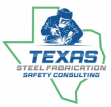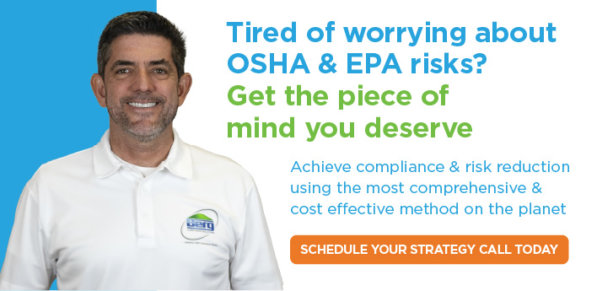Many small Texas manufacturers don’t necessarily understand which EPA and TCEQ environmental and hazardous materials compliance regulations apply to their operations, let alone how to manage them.
Here’s a very quick summary of some of the basic environmental and hazardous materials rules that apply to a typical Texas manufacturer.
Environmental Compliance Requirements Include:
- Hazardous Waste Management:
- Virtually all manufacturers generate some type of hazardous wastes, including spent chemicals, paints, batteries and more.
- Manufacturers must first complete Waste Determinations for all of their wastes and then determine their Generator Status (CESQ, SQG and LQG). Generator status will then determine which other RCRA regulations apply.
- Common hazardous waste regulations include manifesting, employee training, submitting annual waste summaries, P2 plans, and more.
- Learn more about the Top 10 Hazardous Waste Violations in Texas here
- Storm Water Permit:
- Triggered by SIC code, and virtually all manufacturing SIC codes apply
- Impacted companies must either qualify for “No Exposure” (essentially meaning that all potential exposures including things like raw materials, chemical drums, manufacturing processes are either indoors or covered and protected from stormwater exposure) or apply for a permit and develop a plan.
- Companies who don’t qualify for No Exposure must develop and manage a customized Storm Water Pollution Prevention Plan (SWPPP). Plan requirements also include employee training, conducting routine inspections, and testing stormwater samples.
- Air Emissions:
- Virtually all manufacturing air emissions in Texas must be authorized. This includes everything from space heaters to welding, to paint booth operations and more.
- If your process air emissions exceed certain thresholds, your company may need to apply for a New Source Review (NSR) Air Permit or Title V if you have multiple emission sources
- The majority of air emissions can be managed using Permits By Rule (PBRs). Texas has approximately 300 PBRs that cover the majority of air emissions.
Hazardous Materials Requirements:
- Spill Prevention Control & Countermeasure Plan (SPCC):
- Triggered by the quantity of stored hydrocarbons on site, including oils, gasoline and diesel.
- Tier II & TRI Reporting:
- These EPA regulations are triggered by the quantity of certain stored hazardous chemicals. If your company has any of these listed chemicals and exceed threshold quantities, then reporting may be required.
Click here to learn more about our Texas Environmental Compliance Consulting Services.
Most small businesses lack the expertise and time needed to navigate the complicated mess of OSHA & EPA regulations, leaving them vulnerable to costly injuries, fines, and lawsuits.
Berg Compliance Solutions offers turnkey programs to help businesses get peace of mind knowing they are fully compliant and positioned for success.
We Can Help.
Call 512-457-0374 or Click Here
To Schedule Your Free Consultation


